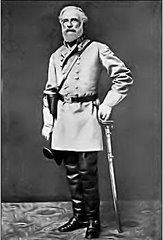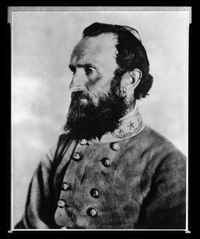Who is God?
Last Thursday, I went to The Pinnacle in Trussville, Al., to put in an application at Bama Fever Tiger Pride, where one half of the store is dedicated to Alabama athletics, and the other half dedicated to Auburn athletics. As soon as I began to open the door, a young lady stopped me, and began asking my name and age. I was somewhat confused, but responded. After this, I was asked if I would like to be interviewed for a documentary by Summit Church.
I agreed, and after signing a piece of paper agreeing to be interviewed, I sat down for the interview, interviewed by a young man. He began asking me basic questions. About the fourth or fifth question in, he asked my who I thought God was. Essentially I responded saying (paraphrased), "God is my Savior, and savior to all who believes in His name; God is also a Trinity, consisting of three persons, God the Father, God the Son, and God the Holy Spirit; all of these are co-equal with one another, none more powerful than the other, but each with distinctive roles."
Overall, although I stuttered a good bit, I felt satisfied with my answer. However as the day went on, I began to think about the question. So often today’s world, we forget to ask ourselves exactly who God is. Is He some fairy tail who does not exist? Is He just some spirit in the sky with no account in the universe? Is He a being that once was, but now is dead? Or is He something more?
I believe that my answer I gave did satisfy a basic definition of God. He is 1) My Savior, 2) Savior to everyone who believes, and 3) a Trinity, consisting of three distinct but equal persons of one Godhead. But could I go beyond just this?
I remember when I was about eleven years of age, my Father had me memorize the Westminster Confession of Faith Shorter Catechism. This is essentially the beliefs held by many of the early Reformed Protestants, often, but not limited to Presbyterian or Calvinist doctrine (see http://www.opc.org/sc.html ). Question number four is "What is God?" The answer given is, "God is a spirit, infinite, eternal, and unchangeable, in His being, wisdom, power, holiness, justice, goodness, and truth."
I thought about giving an answer along these lines, but I could not remember exactly how the wording of the answer was, and I honestly did not want to appear "cocky" in my answer. Beyond this, I wanted to answer how God is a personal Savior, a savior to all who believes, and a Trinity. The Shorter Catechism definition did not mention any of those three.
But both definitions are true. It is hard to define exactly who the God of the Bible is fully and sufficiently in very simple and quick terms. One can give a definition of what qualifies as a God, but that does not mean that these are the limits to the one true God that exists.
Essentially, God Himself, in His defined identity, is all-powerful, or, omnipotent. He is all-knowing, and in His own way, He is everywhere, or omnipresent. However, this does not sufficiently and fully define who the God of the Bible is.
The God of the Bible is "eternal and unchangeable" in His "Holiness, justice, goodness, and truth," as the Shorter Catechism tell us. God is love. Not every believed God follows these guidelines. But the God of the Bible does, and this definition of God shows consistency in explaining the world today.
It is obvious in the world that knowledge and intelligence exists. I use knowledge and intelligence in writing this very sentence. It is also apparent that there is existence beyond this knowledge, that can not be explained by the explainable, but only by something greater. It is hard enough for an atheist to accept the intelligence of this world without God, but it becomes essentially impossible to explain the true emotions such as love and hate and compassion without God, or certain moral principles without God. The emotions such as love, hate, compassion, etc., seem to imply an eternal attribute to these very emotions themselves. Otherwise, they are nearly meaningless, given that in an atheistic viewpoint, the world has been here for billions of years. How does knowledge, and eternal emotion exist without either being in the defined identity of God Himself, or being completely created by God Himself?
These things can not be explained by the atheist. Even atheists hunger and thirst for community, acceptance, and love. This is essentially who God is- not certain features that He accredited over time, but who He is in His very nature. It is true that God has made sacrifices for man. It is not true to suggest that God had to change Himself in order to make these sacrifices. God has always been a God of love, community, and grace, who works in excessive ways. God did not have to create the universe. Even if He decided to, He could have created a small universe all in one day. Instead, God created a gigantic universe in six days, resting on the Seventh Day. Furthermore, He allowed for sin to exist, where He could have made it stay "good" relative to itself.
Furthermore, God did not have to create man with love for one another, not that He had to create man in general. God created man in His own image. I believe that creation is a continuing act, all of creation ultimately pointing to who God really is. This is not to say that God is sin, because sin exists, but that God can overcome sin, as we are to "overcome evil with good" (Romans 12:21). Sheldon Vanauken said, "Creation is a continuing act, I believe, and although God allows us choices, His eternal will is acting upon the consequences."
Furthermore, God is love, and essentially, love is a Trinity, just as God is. Rich Lusk, Pastor of Trinity Presbyterian Church (CREC), in Birmingham, Al., said (paraphrased), "…And love itself is a Trinity. A Trinity is a union of three. In love, we see two lovers, and the love that they share. Nine months later, that love has a name…" God the Father and God the son share the love of the Holy Spirit; God the Father and God the Holy Spirit share the love of God the Son; God the Holy Spirit and God the Son share the love of God the Father; they are all three driven into communion with each other through love.
The universe as a whole is the continuing outworking of God’s plan, designated to show who God is. That is why man was created in the image of God. I could not answer as to if God created the universe to redeem a fallen people, or if He redeemed a fallen people because His created universe fell. That is beyond my knowledge, and beyond the knowledge of any of my readers. But even the redemption God showed on His fallen people does attest to His grace, which is an essential aspect of who God is in and of Himself. Rich Lusk, in another sermon, said (paraphrased), "Ultimately, the whole Bible is a love story. It is amazing that the Bible begins with a marriage and ends with a marriage; early in Geneses, we see the marriage of Adam and Eve; at the end of the Bible, we see the marriage of Jesus Christ and the church; the Bible is about a man saving His bride, but in order to save his bride, he must die for her."
Unbelievers tell us that the Bible is just a fairy tail like Cinderella or Snow White. They tell us it is just a made up story. The unbelievers are right on one account. The Bible is in many ways a literary story, like these other stories we see. However this story is true. All other love stories and all fairy tails ultimately branch off of this story, as pictures of it. Many old fables and stories show symbolism to a Christian theme. While some say that the Bible is merely a story like all others reflected upon a common story or theme, I believe that the Bible is the common story itself, the true story that other stories are based off of.
The whole story of God is summed up into this: creation, fall, and redemption. In redemption, we have it better than creation before the fall. We have Jesus, a better groom than Adam. We have the church, a better and more sanctified bride than Eve. This story can even be seen in many modern-day movies such as Finding Nemo, or The Lion King. Essentially the theme is this: "In order to find your life, you must lose it." In Finding Nemo, Nemo and his Dad are separated. He lost a part of himself. Most of the movie is about being reunited with his Dad. In the end, the two find each other, are happier because they know who they are, and their respective roles- not to mention that along the way they find a new friend, Dory. In The Lion King, Simba loses his father, and then runs away. Most of the movie is about him being lost, and confused, searching for his place in the world. In the end, Simba becomes King, but to do this, he must fight the fallen enemy, Scar.
These human stories point to God’s story. God’s story points to God Himself. Understanding who God is better helps us defend the faith, and helps us better understand the purpose of God’s plan in general, and where we fit in it.
What do you think?
Ryan
Upcoming Blogs: I plan for my next blog (subject to possible change) to be about music and cultures, and the relationship thereof. I also want to post a blog on the election, so that could be the next blog after that. Thanks,
Ryan
Tuesday, August 7, 2007
Subscribe to:
Post Comments (Atom)










No comments:
Post a Comment